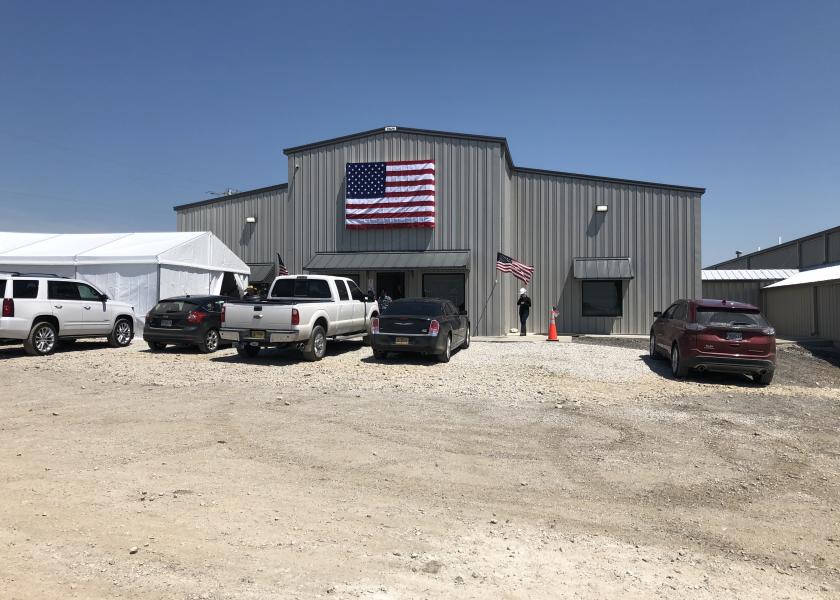Newest U.S. Beef Packing Plant Poised to Make Big Splash

Thirty-four miles southeast of Kansas City, Mo. a small meat processing facility is gearing up for a big expansion—and the potential to make waves in the national livestock processing scene. Republic Foods expects to quadruple production by the end of the year.
Republic Foods is Texas-founded and has recently relocated to Missouri after purchasing the newest packing facility in the U.S.
“Before we purchased this location, [the previous owners] were processing up to 78 head of cattle per day,” says Jeremy Robinson, with Republic Foods. “[Mid-June] we’re processing over 250 per day and after an upcoming expansion, we could be up to 1,000.”
While Republic Foods is at 250 per day now, they’re equipped to process about 500 animals per day with their current setup.
The company originally planned to revamp the facility and hold off production until June 1, 2020. With COVID-19 shortages and supply chain complications, local grocery stores started reaching out to the new owners asking if they had any available supply—and when opportunity knocked, the company answered.
Market differentiation
Including Republic Foods, there are 672 beef processing facilities in the U.S., according to USDA. While it might not seem like one facility would make a difference, company officials believe their venture has the potential to create a major impact. Consider the ripple effect. Cattle that were being transported from Missouri to Oklahoma, Kansas, Iowa, etc. will now find a new home—leaving a void in their former contract location.
With so many large- and small-scale processors already established in the market, Robinson and his team realized they’d have to do something different to capture consumer attention—especially when COVID-19 shortages cease. So, instead of processing on behalf of a large-scale company, they’re branching out, branding their products and targeting smaller grocery store chains.
“We’re putting money into branding, something like ‘Missouri Beef,’” Robinson says. “We want to keep beef on local shelves and source the beef from as many Missouri farmers as possible.”
Right now, the company is about 70% Missouri beef at 250 head per day production. When it ramps up to 1,000 head per day, they’ll need to locate more suppliers from even further reaches of the Show-Me-State.
Instead of prioritizing big-box or national stores when any potential beef shortages happen, Robinson says they’ll keep it local—chains such as Price Chopper, Schnucks and other Missouri-based stores.
Upcoming expansion
The company will prioritize Missouri producers, or other local cattle, Robinson says. They currently have no load minimums or maximums and can often process the animals just a day after securing the load.
“We’ll pay market price that day for the cattle,” he says. “Right now, we’re not looking at future contracting, but that might be something we consider when we boost capacity.”
To move from about 250 head processed per day to 1,000 head of processing per day, the company will need to increase numbers and facility size and add employees, too. Currently they’re at 175 employees, and at capacity they expect to have 300 full-time workers.
There’s potential the new packing plant could receive some of the $20 million set aside by the Missouri legislature for agricultural assistance in response to COVID-19.
“We want to increase Missouri packing abilities,” says Warren Love, of the Missouri House of Representatives. The $20 million set aside for ag could be available as early as July 1, 2020 and packing facilities can apply, he adds.
The expansion itself will cost about $9 million and could be completed in approximately eight months. The company says it's committed to the expansion. In addition, Republic Foods is currently considering purchasing other facilities out of state.







